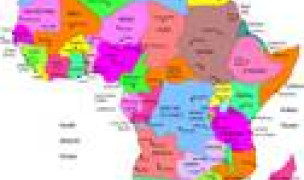 0 بنود
0 بنودHome > بنود > الأرمنية (HY) > միջազգային օգնություն
միջազգային օգնություն
A helping hand for poor countries from rich countries. This, at least, is the intention. In practice, in many cases aid has done little good for its intended recipients (improved health care is a notable exception) and has sometimes made matters worse. Poor countries that receive lots of aid grow no faster, on average, than those that receive very little. By contrast, perhaps the most successful aid program ever – the Marshall plan for rebuilding Europe after the second world war – involved rich countries giving to other hitherto rich countries. During the second half of the 20th century rich countries gave over $1 trillion in aid to poor ones. During the 1990s, however, flows of official aid stagnated. In 2001, official aid was a little over $50 billion, roughly one quarter of the GDP of donor countries. On top of this were private-sector donations from NGOs (non-government organizations) worth an estimated $6 billion. Increasingly, such sums were exceeded by private foreign direct investment. In an attempt to reinvigorate international aid, in 2000 the UN committed itself to eight ambitious Millennium Development Goals for reducing global poverty by 2015. Why has aid achieved so little? Donations have often ended up in the offshore bank accounts of corrupt politicians and officials in poor countries. Money has often been given with strings attached, so that much of this “tied” aid is spent on com¬panies and corrupt politicians and officials in the donor country. War has ravaged many potentially beneficial aid projects. Moreover, some aid has been motivated by political goals – for example, shoring up anti-communist governments – rather than economic ones. The lesson of history is that aid will often be wasted unless it is carefully aimed at countries with a genuine commitment to sound economic management. Analysis by the World Bank sorted 56 aid-receiving countries by the quality of their economic management. Those with good policies (low inflation, a budget surplus and openness to trade) and good institutions (little corruption, strong rule of law, effective bureaucracy) benefited from the aid they received. Those with poor policies and institutions did not. This accounts for the growing popularity of conditionality in aid.
- نوع المصطلح: اسم
- المرادف (المرادفات)
- مسرد المصطلحات
- المجال / النطاق: الاقتصاد
- الفئة: علم الاقتصاد
- Company: The Economist
- المنتج:
- الاختصار-المختصر:
لغات أخرى:
ماذا ترغب أن تقول؟
مصطلحات في الأخبار
مصطلحات مميزة
սեր
Ուժեղ հոգատարություն մեկ այլ անձի հանդեպ: Դա լինում է շատ ձևերով: Կարող է լինել սեր ռոմանտիկ սիրահար զույգերի, մտերիմ ընկերների, ծնողների և երեխաների, ...
معاجم متميزة
Browers Terms By Category
- خلايا الوقود(402)
- مكثفات(290)
- محركات(278)
- مولدات(192)
- قواطع الدوائر الكهربية(147)
- إمدادات الطاقة(77)
أجهزة كهربائية(1403) Terms
- مهرجانات(20)
- أعياد دينية(17)
- الأعياد الوطنية(9)
- الشعائرن الطقوس(6)
- العطلات غير الرسمية(6)
- الأعياد الدولية(5)
أعياد(68) Terms
- مصطلحات الملاهي الليلية(32)
- مصطلحات الحانات(31)
حانات وملاهي ليلية(63) Terms
- النبيذ(459)
- القهوة(401)
- الشاي(388)
- محلول مقطر(209)
- الجعة(166)
- شراب الفودكا ( شراب روسي)(135)
المشروبات(2092) Terms
- مفردات SAT (اختبار الكفاء الدراسية)(5103)
- الكليات والجامعات(425)
- التدريس(386)
- General education(351)
- التعليم العالي(285)
- المعرفة(126)





